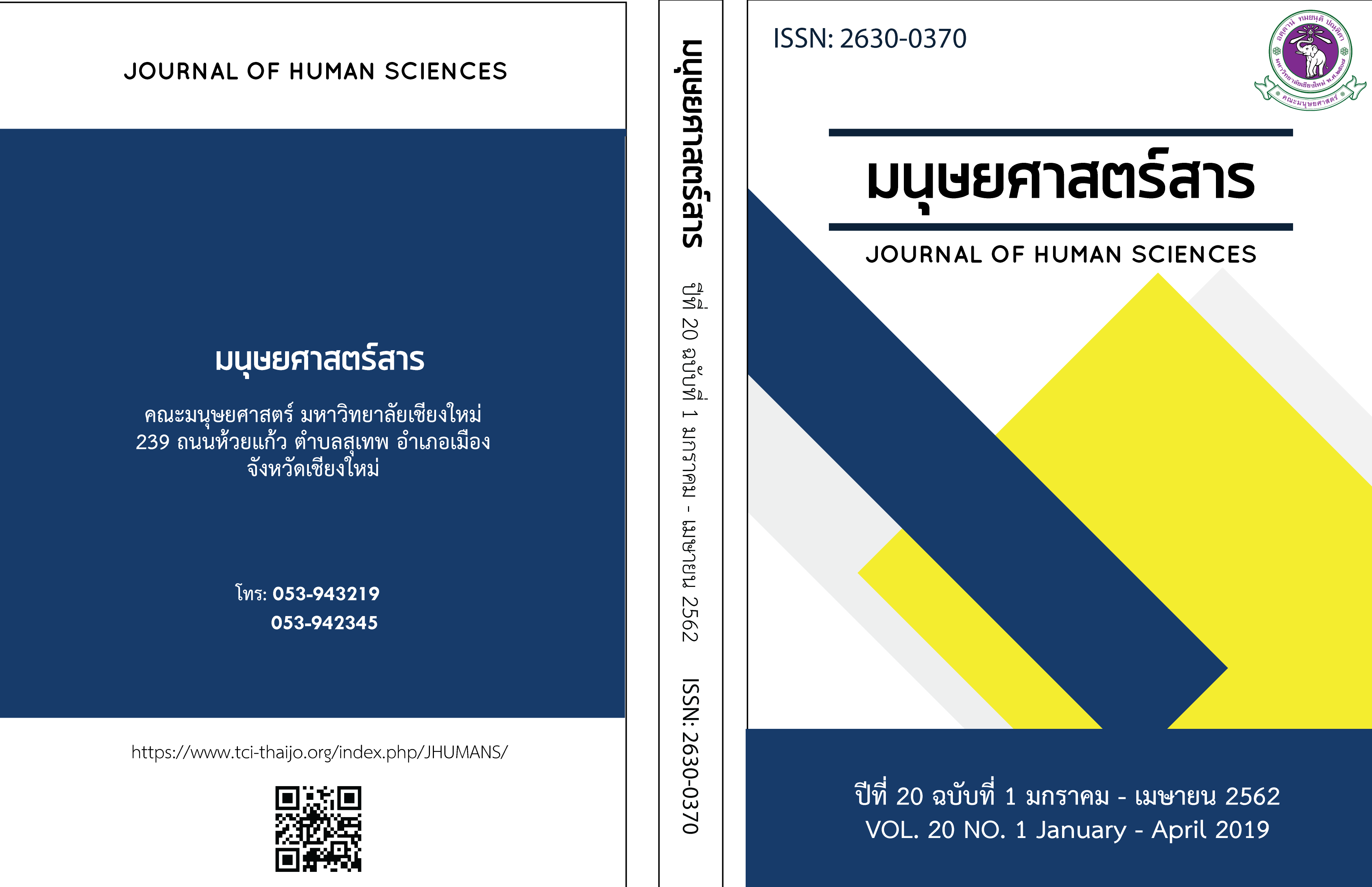ผลของการปรึกษาเชิงจิตวิทยาแบบกลุ่มตามแนวคิดการบำบัดด้วยการยอมรับและพันธสัญญาต่อความสอดคล้องในตนเองของนักจิตวิทยาการปรึกษาฝึกหัด
Main Article Content
บทคัดย่อ
การวิจัยในครั้งนี้มีวัตถุประสงค์เพื่อศึกษาผลของการปรึกษาเชิงจิตวิทยาแบบกลุ่มตามแนวคิดการบำบัดด้วยการยอมรับและพันธสัญญาต่อความสอดคล้องในตนเองของนักจิตวิทยาการปรึกษาฝึกหัด แบบของการวิจัยเป็นการวิจัยกึ่งทดลองที่มีกลุ่มทดลองและกลุ่มควบคุม โดยมีการทดสอบก่อนและหลัง กลุ่มตัวอย่างเป็นนักจิตวิทยาการปรึกษาฝึกหัด ซึ่งเป็นนักศึกษาสาขาจิตวิทยาการปรึกษาและการแนะแนว คณะครุศาสตร์ มหาวิทยาลัยราชภัฏเชียงใหม่ ชั้นปีที่ 3 จำนวน 18 คน นักจิตวิทยาการปรึกษาฝึกหัดที่เข้าร่วมการวิจัยแบ่งออกเป็นกลุ่มทดลอง 10 คน และกลุ่มควบคุม 8 คน กลุ่มทดลองได้เข้าร่วมการปรึกษาเชิงจิตวิทยาแบบกลุ่มตามแนวคิดการบำบัดด้วยการยอมรับและพันธสัญญา โดยใช้ระยะเวลาประมาณ 15 ชั่วโมง ต่อเนื่องกัน 2 วัน โดยมีผู้วิจัยเป็นผู้นำกลุ่ม เครื่องมือที่ใช้ในการวิจัยประกอบด้วย โปรแกรมการปรึกษาเชิงจิตวิทยาแบบกลุ่มตามแนวคิดการบำบัดด้วยการยอมรับและพันธสัญญา เพื่อพัฒนาความสอดคล้องในตนเองของนักจิตวิทยา การปรึกษาฝึกหัด และแบบวัดความสอดคล้องในตนเองที่พัฒนาขึ้นโดยผู้วิจัย ซึ่งประเมินโดยบุคคล 2 ฝ่าย ได้แก่ นักจิตวิทยาการปรึกษาฝึกหัดประเมินตนเอง และผู้รับการปรึกษาประเมินนักจิตวิทยาการปรึกษาฝึกหัด และเก็บรวบรวมข้อมูลเชิงคุณภาพร่วมด้วย โดยนำบันทึกประสบการณ์ของกลุ่มตัวอย่างหลังการดำเนินการปรึกษาเชิงจิตวิทยาแบบกลุ่มตามแนวคิดการบำบัดด้วยการยอมรับและพันธสัญญามาวิเคราะห์เนื้อหา สถิติที่ใช้ในการวิเคราะห์ข้อมูล คือ การวิเคราะห์ค่าสหสัมพันธ์เพียร์สัน และการทดสอบค่าทีทั้งกรณีที่กลุ่มตัวอย่างไม่เป็นอิสระต่อกัน และกลุ่มตัวอย่างเป็นอิสระต่อกัน โดยหลังจากที่ได้ข้อมูลการประเมินซึ่งมีความสอดคล้องกันระหว่างนักจิตวิทยาการปรึกษาฝึกหัดกับผู้รับการปรึกษาแล้วจึงนำมาทดสอบค่าที ผลการวิจัยพบว่า (1) นักจิตวิทยาการปรึกษาฝึกหัดที่เข้าร่วมการปรึกษาเชิงจิตวิทยาแบบกลุ่มตามแนวคิดการบำบัดด้วยการยอมรับและพันธสัญญามีความสอดคล้องในตนเองสูงกว่าก่อนการเข้าร่วมกลุ่ม อย่างมีนัยสำคัญทางสถิติที่ระดับ .01 (2) นักจิตวิทยาการปรึกษาฝึกหัดที่เข้าร่วมการปรึกษาเชิงจิตวิทยาแบบกลุ่มตามแนวคิดการบำบัดด้วยการยอมรับและพันธสัญญามีความสอดคล้องในตนเองของสูงกว่านักจิตวิทยาการปรึกษาฝึกหัดที่ไม่ได้เข้าร่วมกลุ่ม อย่างมีนัยสำคัญทางสถิติที่ระดับ .01


